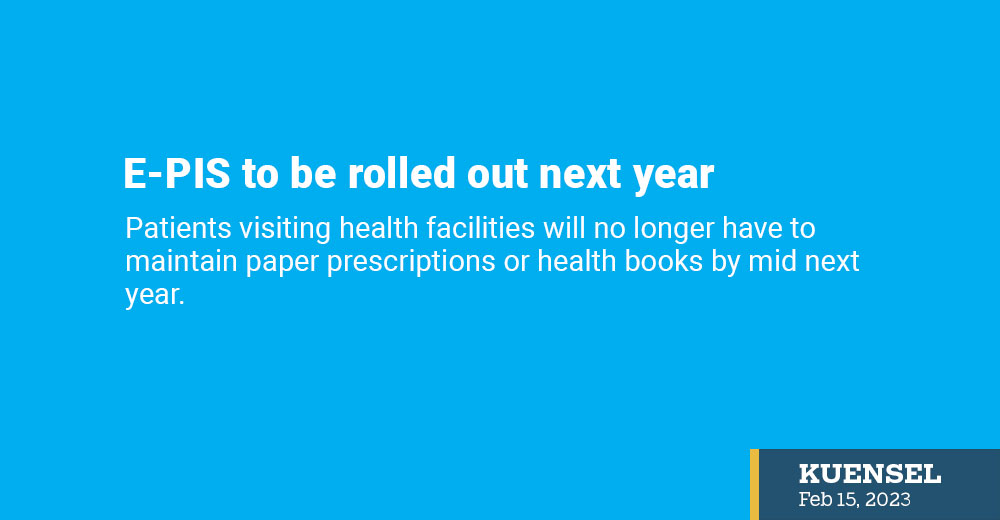Nima Wangdi
Patients visiting health facilities will no longer have to maintain paper prescriptions or health books by mid next year.
The e-patient information system (e-PIS) is expected to be rolled out next year.
The e-PIS is a system to maintain the details of the patients electronically and it is also one of the main components of Digital Drukyul.
This system will be rolled out at Jigme Dorji Wangchuck National Referral Hospital (JDWNRH) in Thimphu in July this year. The system is on a trial run in the hospital today.
Research Ethics Board of health’s secretary, Mongal Singh Gurung, said that health professionals have to prescribe patients from the beginning if patients coming for follow-up lose previous prescriptions. “With this system in place, the problem will not occur.”
He said that health officials compiling and submitting reports to the ministry was a burden and a wasted time. “They will not have to do this once e-PIS is launched and patients will also not have to maintain and take care of bunches of prescriptions.”
The people during the issuance of prescriptions at the hospital receptions ask for citizenship identity card (CID) numbers for this system. It is because the details of the patient will be linked with the CID number.
The details of patients should be respected as confidential and only health officials can view them. Patients may also be able to get their own details on their requirements, according to Mongal Singh Gurung.
He said the development of the system was given to Thimphu Trek Park through Druk Holding and Investment after the previous company failed to deliver. The company was also fined 10 percent of the project cost.
“We have overcome the most difficult part of the work as of now,” Mongal Singh Gurung said.
A health assistant said that the system would decrease the burden significantly. “Having to do everything manually at the moment is a burden for us. We have to write prescriptions to compile records and submit reports to the ministry. With the system in place, our work will get less, enabling us to focus more on patients.”
The system also has a strong anti-hack features.
The health ministry started working on the ePIS system in 2016 and piloted it in Paro in 2017. However, the initiative could not materialise mainly because of the lack of technical expertise and poor internet connection.


